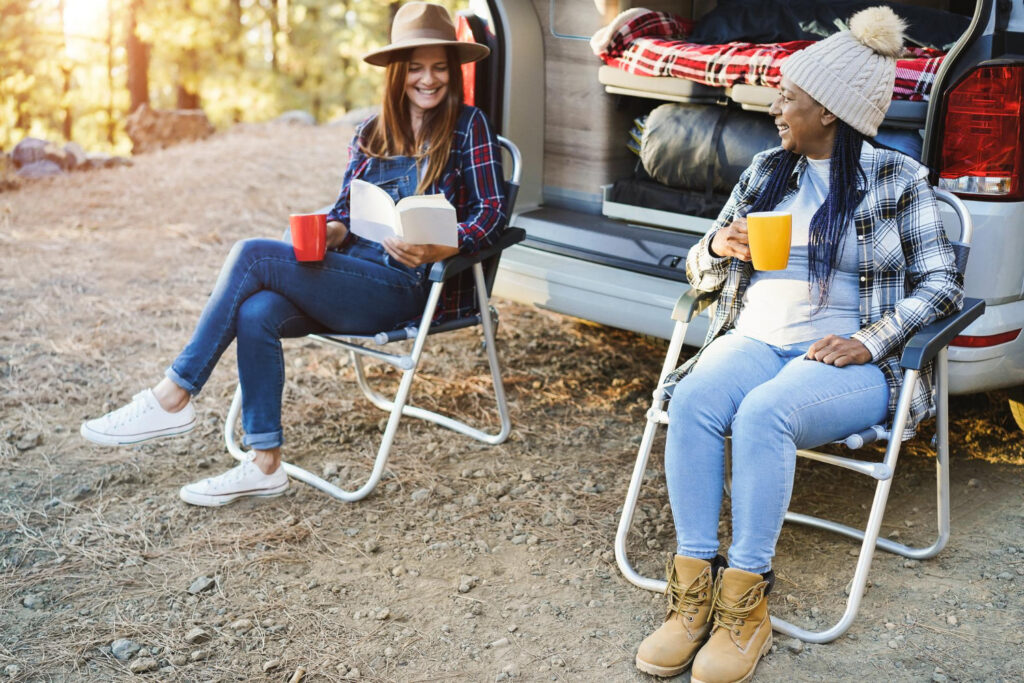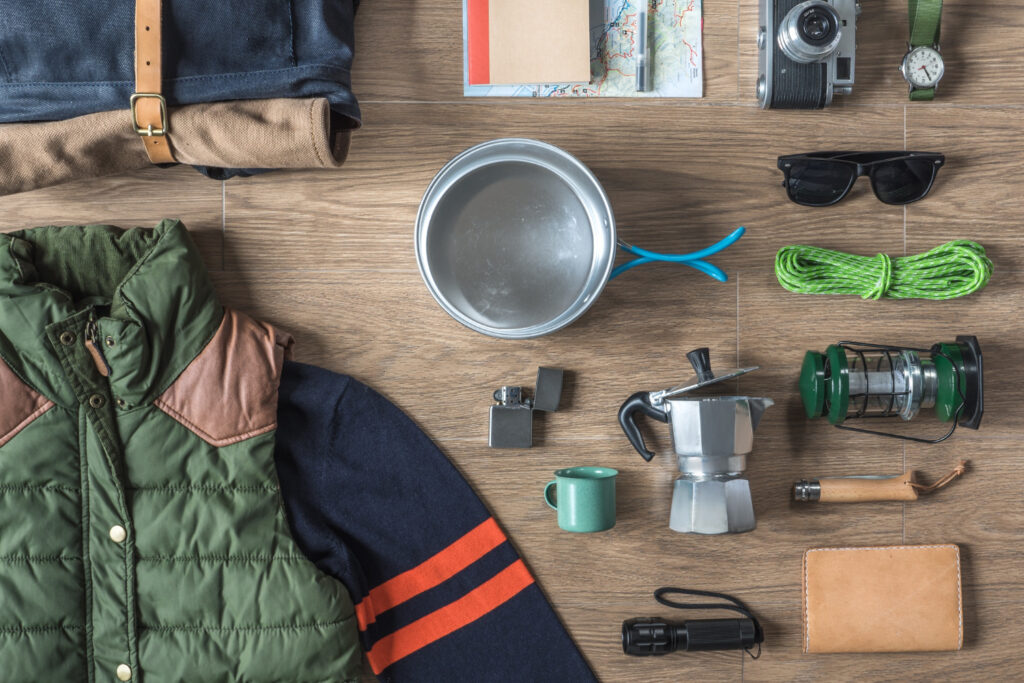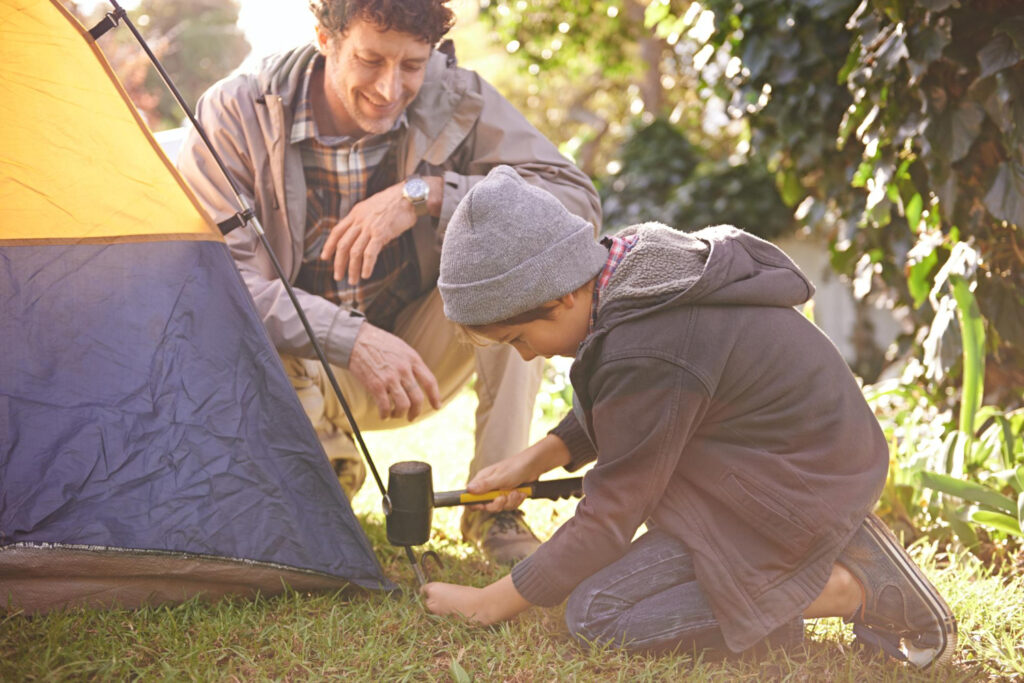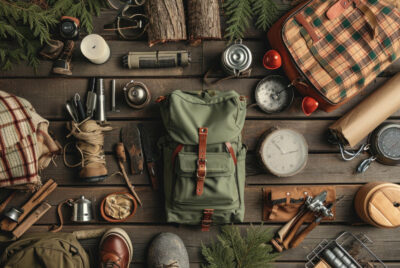Camping For Beginners
Have you ever dreamed of falling asleep under a blanket of stars, with nothing but the gentle rustling of leaves and the soft crackle of a campfire to lull you to sleep? If you’re new to camping, that dream might seem both exciting and a little intimidating. Don’t worry – we’re here to walk you through everything you need to know about camping for beginners, from choosing your first campsite to making unforgettable memories in the great outdoors.
Why Your First Camping Trip Could Change Your Life
Let’s be honest: in our hyper-connected world, we’re all desperately seeking ways to unplug and recharge. Camping offers exactly that – a chance to trade your email notifications for bird songs and your office chair for a cozy spot around the campfire. But camping for beginners isn’t just about escaping the daily grind; it’s about discovering a whole new way to experience the world around you.
Whether you’re looking to bond with family, create adventures with friends, or simply find some peace and quiet, camping provides a unique opportunity to step away from the complexities of modern life and embrace something more fundamental. The best part? You don’t need to be an outdoor expert to get started.
Choosing Your Perfect Camping Style
The Great Debate: Tents vs. RVs vs. Cabins
When it comes to camping for beginners, you’ve got options – each with its own charm and challenges:
Tent Camping: This is camping in its purest form. You’ll sleep in a tent, cook over a campfire or portable stove, and truly immerse yourself in nature. Don’t let its simplicity fool you – modern tents are surprisingly comfortable and easy to set up. Plus, there’s something magical about falling asleep with just a thin layer of fabric between you and the great outdoors.
RV Camping: Think of it as bringing a tiny house on wheels. You’ll get a real bed, a kitchen, and often your own bathroom. It’s perfect if you want to ease into outdoor living while keeping some familiar comforts. Just remember that RVs require special considerations for parking, hook-ups, and driving.
Cabin Camping: Consider this your “camping with training wheels” option. Many campgrounds offer basic cabins that give you a solid roof over your head while still letting you experience the joys of outdoor living. It’s an excellent choice for families with young children or anyone who wants to test the camping waters before diving in deeper.
Car Camping: The Perfect Starting Point
For most beginners, car camping offers the sweet spot between adventure and convenience. You can drive right up to your campsite, which means no hauling heavy gear through the woods. Your car also serves as a secure storage space for food and supplies, and it’s there if you need a quick escape from unexpected weather.

Essential Gear: What You Really Need (And What You Don’t)
Shelter and Sleep Setup
Your tent will be your home away from home, so choose wisely. For camping beginners, look for these features:
- Easy setup (practice at home first!)
- Weather resistance
- Enough space for everyone plus their gear
- Good ventilation
When it comes to sleeping gear, don’t skimp. A quality sleeping bag rated for your camping season and a comfortable sleeping pad can make the difference between a good night’s sleep and a long, miserable night. Remember: cold comes from the ground up, so that sleeping pad is just as important as your bag.
Kitchen Essentials
You don’t need a gourmet setup to enjoy good food while camping. Start with:
- A reliable two-burner propane stove
- Basic cookware (pot, pan, utensils)
- Plates, cups, and eating utensils
- A cooler for perishables
- Water containers
Pro tip: Plan your meals ahead and prep what you can at home. Simple dishes like foil packet meals, pre-marinated meats, and one-pot recipes make campsite cooking a breeze.
Clothing Strategies
The secret to comfortable camping? Layers, layers, layers. Pack:
- Moisture-wicking base layers
- Warm mid-layers (fleece works great)
- Waterproof outer layer
- Sturdy, comfortable footwear
- Extra socks (more than you think you need)
Remember: cotton is your enemy when camping. It holds moisture and can make you dangerously cold. Opt for synthetic materials or wool instead.
Must-Have Accessories
These small items make a big difference:
- Headlamp or flashlight (plus extra batteries)
- Multi-tool or knife
- First aid kit
- Insect repellent
- Sunscreen
- Fire starters
- Maps and compass (don’t rely solely on your phone)

Choosing Your First Campsite
Campground Camping vs. Backcountry
For your first few trips, stick to established campgrounds. They offer:
- Clear directions and marked sites
- Access to clean water
- Bathroom facilities
- Often, a camp host who can answer questions
- Cell phone coverage (usually)
- Emergency services nearby
Save the backcountry adventures for when you’ve got some experience under your belt.
Picking the Perfect Spot
Once you’re at the campground, look for these features in your site:
- Level ground for your tent
- Natural wind breaks
- Shade for part of the day
- Distance from busy bathrooms or roads
- Good drainage (avoid low spots)
Setting Up Camp Like You’ve Done It Before
Tent Setup 101
Follow this sequence for a stress-free setup:
- Clear the ground of rocks and sticks
- Lay down your ground cloth or footprint
- Unpack and organize tent parts
- Assemble poles according to instructions
- Attach tent body
- Secure rainfly if needed
- Stake everything down properly
The Art of Campfire Building
Nothing says “camping” like a proper campfire. Here’s how to build one safely:
- Check local regulations and fire danger levels
- Use established fire rings only
- Gather different sizes of dry wood
- Build with small kindling first
- Add progressively larger pieces
- Keep water nearby for safety
- Never leave your fire unattended
Staying Safe and Comfortable
Wildlife Safety
Most creatures want to avoid you as much as you want to avoid them. Basic rules:
- Store food properly (in your car or bear-proof container)
- Keep a clean campsite
- Make noise while hiking
- Never feed wildlife
- Know what wildlife is common in your area
Weather Wisdom
Mother Nature can be unpredictable, so:
- Check forecasts obsessively before your trip
- Pack for conditions slightly worse than expected
- Know where to take shelter if needed
- Have a backup plan for severe weather

Making Memories: Camping Activities
Don’t just sit there – explore! Try:
- Short hikes around your campground
- Photography
- Bird watching
- Star gazing
- Campfire cooking
- Nature scavenger hunts
- Reading or journaling
- Simply sitting quietly and observing nature
Leave No Trace: Camping Responsibly
Remember this golden rule: leave your campsite better than you found it. This means:
- Pack out ALL trash
- Use biodegradable soap
- Stay on established trails
- Respect quiet hours
- Follow fire regulations
- Don’t damage plants or harass wildlife
Common Beginner Mistakes (And How to Avoid Them)
Learn from others’ experiences:
- Not testing gear before the trip
- Arriving after dark
- Bringing too much stuff
- Underestimating weather impacts
- Forgetting essential items
- Not planning meals properly
Your Camping Adventure Awaits
Remember, camping for beginners doesn’t have to be overwhelming. Start small, perhaps with just one night at a nearby campground. Focus on the basics, and don’t worry about having the fanciest gear or the most extreme adventure. The goal is to enjoy yourself and connect with nature in whatever way feels comfortable for you.
Each camping trip teaches you something new, and before you know it, you’ll be sharing your own tips with other camping beginners. So gather your gear, pick your spot, and get ready for an adventure that might just change how you see the world.
What’s that sound? It’s the great outdoors calling your name. Time to answer!




